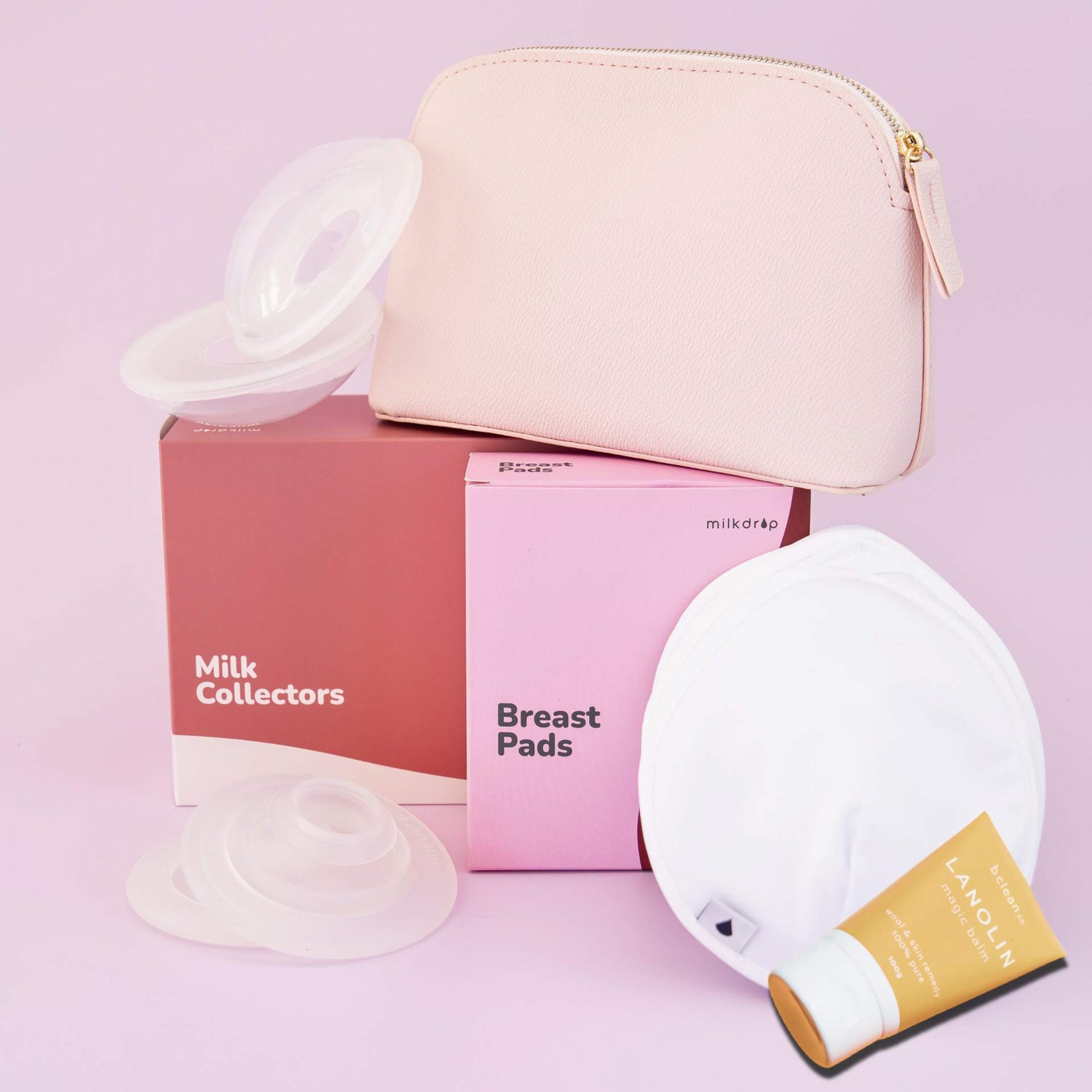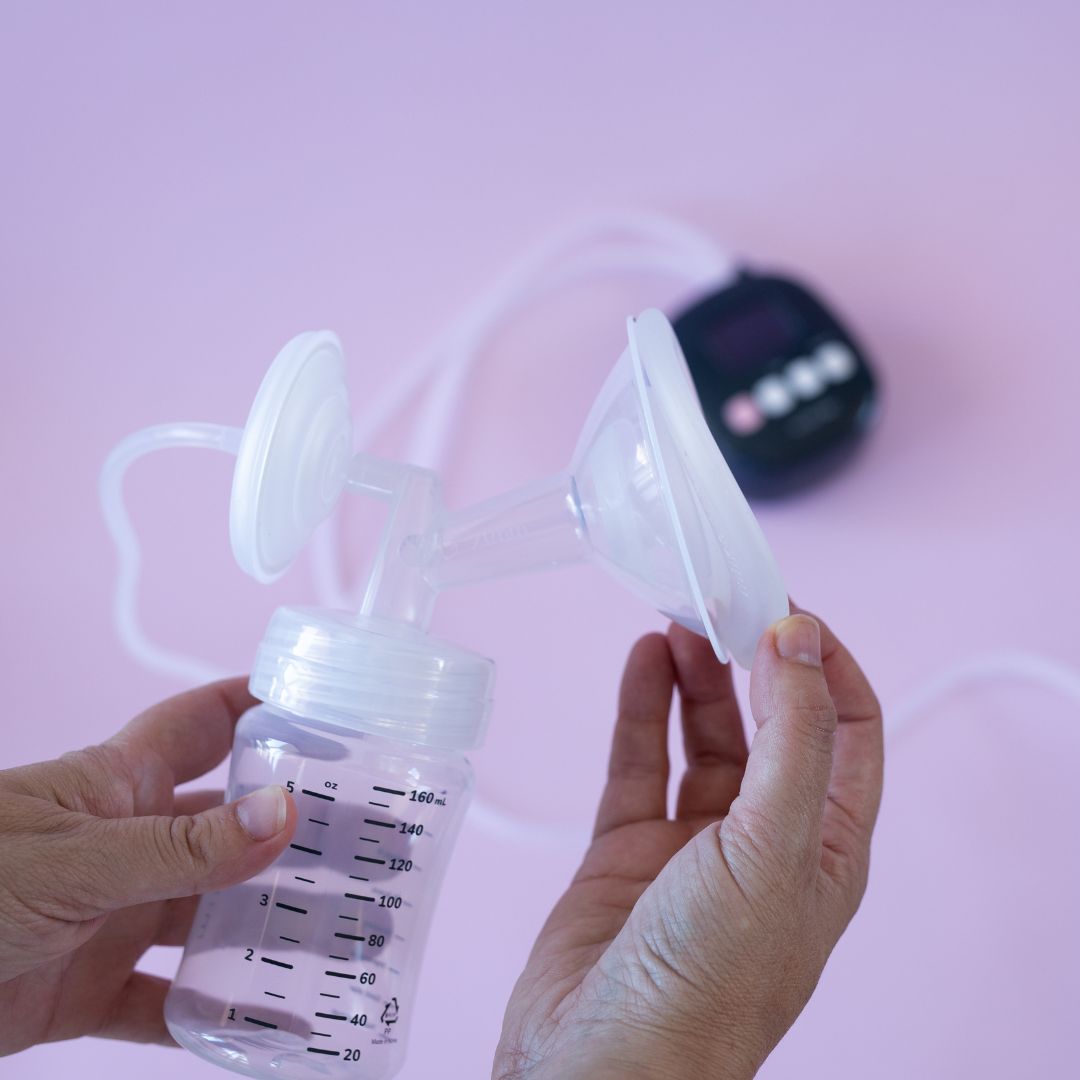During pregnancy, your body undergoes many changes - as you might have well noticed! One of these changes is the production of colostrum, which is the first milk that you will produce for your newborn baby. Colostrum is rich in nutrients and plays a crucial role in providing your little newborn with the antibodies and protection he or she needs in the early days of life. In some cases, women may choose to express colostrum before giving birth. Some mothers may be more at risk or preterm labour from breast stimulation, so it’s always important to check with your doctor before expressing during pregnancy. Here's what you need to know about expressing colostrum during pregnancy before you attempt to do so yourself.
What is colostrum?
Colostrum is a thick, golden-coloured milk that is produced by your breasts in the first few days after giving birth. It contains high levels of antibodies, protein and other nutrients that are essential for your newborn baby’s growth and development. Colostrum also helps to protect your baby from infections and illnesses.
Why would someone want to express colostrum during pregnancy?
There are several reasons why you might choose to express some colostrum during the late stages of pregnancy. Some women do this to prepare for breastfeeding, while others do it because they have a medical condition that may affect their ability to breastfeed.
Some of the most common reasons for expressing colostrum during pregnancy:
- To prep for breastfeeding
Expressing colostrum before you give birth can help to stimulate milk production and may prepare your breasts for breastfeeding. It can also help you to become more comfortable with the process of expressing milk, which can be helpful if you experience any difficulties with breastfeeding after birth, or if you choose to incorporate pumping into your pumping routine.
- Due to a medical condition
Some medical conditions can make breastfeeding more challenging, such as diabetes, thyroid disorders, or PCOS. Expressing colostrum during pregnancy can help to ensure that your baby receives the benefits of colostrum, even if you are unable to breastfeed immediately after birth.
- If you’re anticipating separation from bub
If you know that you will need to be separated from your baby after birth (eg. if your baby needs to stay in the NICU), expressing colostrum beforehand can ensure that your newborn receives the benefits of colostrum even if you’re unable to breastfeed right away.
How do you express colostrum?
If you are interested in expressing colostrum during pregnancy, it's important to speak with your healthcare provider first. They can help you determine if it's safe for you to do so, and provide guidance on how to do it.
Here are some general tips for expressing colostrum during pregnancy:
- Start around 36-37 weeks of pregnancy
This is usually when your colostrum begins to be produced, although it can vary from person to person. Stimulating the breasts earlier in pregnancy can risk cramping or preterm labour - always consult your doctor before beginning to express milk.
- Use hand expression
Hand expression is the most effective way to express colostrum during pregnancy. It involves using your hands to massage and compress the breast tissue to encourage milk flow.
- Express once or twice a day
It's generally recommended to express colostrum once or twice a day for about 5-10 minutes each time. You can express from one breast at a time, or both breasts at the same time.
- Store colostrum safely
Colostrum can be stored in sterile containers and frozen for later use. Your healthcare provider or lactation consultant can provide guidance on how to store colostrum safely.
Expressing colostrum during pregnancy can be a helpful way to prepare for breastfeeding or to ensure that your baby receives the benefits even if you are unable to breastfeed immediately after birth. If you are considering expressing colostrum, be sure to speak with your healthcare provider first to ensure that it is safe for you to do so.



